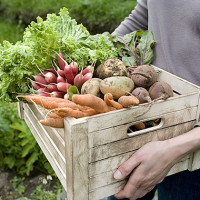
The California legislature has been busy passing new laws that affect drinking wine in California, whether picnicking at a local winery or floating down the Truckee River outside of Tahoe City. These laws will be effective Jan. 1, 2009 and make significant changes to the Alcohol Beverage Control Act. Here is a sneak preview of what you can expect.
Many of the nonprofit groups in the Valley have no-host bars at their fundraisers. The current law allows nonprofit corporations to obtain only one temporary license each year to sell alcoholic beverages at a fundraiser. The alcohol served by the nonprofit must be donated to the nonprofit corporation. Under the new law, nonprofits may obtain up to three temporary licenses each year that can be issued for a period of up to 30 days each. In addition, the nonprofit groups now may receive and store wine donations before a special event or before temporary permits are issued. However, the groups are permitted to store the wine for only up to 30 days prior to their event. And good news, nonprofit corporations will now be able to purchase the wine, rather than to rely only upon donations of wine.
Also coming up in the New Year is the law nicknamed the “Picnic Bill.” This new law begins a new era of wine hospitality, allowing wineries to sell wine by the glass in tasting rooms, not just by the bottle, at the original winery premises. The wineries may also sell glasses of wine as well as bottles of wine for consumption in picnic areas – if the picnic area is part of the licensed premises. That means that as long as the winery has licensed its deck, patio, and garden area, wine may be sold and consumed in those areas. But if a picnic area is not part of a winery’s licensed premises, they should not allow on-sale drinking in those areas. If wineries allow their consumers to drink the wine in an unlicensed area, they may be liable for misconduct and be subject to an action by the attorney general or district attorney to abate the nuisance.
And good news for those who do not finish the bottle of wine before they leave the winery – the new “doggie bag” law permits customers to take partially consumed bottles of wine from the winery when they leave.
Of course, the law has not changed for the customers who drive away with their unfinished bottle of wine. California traffic laws generally prohibit drivers and passengers from possessing any opened bottle containing alcohol, even if it has been recorked. The wine bottle must be kept in the trunk of the car, and if the car does not have a trunk, the driver or passengers must keep the wine in some other area of the vehicle that is not normally occupied.
And last but not least, it will now be a crime to drink alcohol in boats on the Truckee River between the Highway 89 Bridge and the Alpine Meadows Bridge.
New laws boon to winery visitors and nonprofits
More from FeaturesMore posts in Features »




